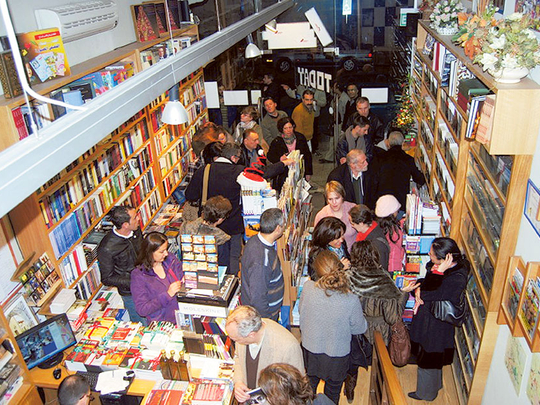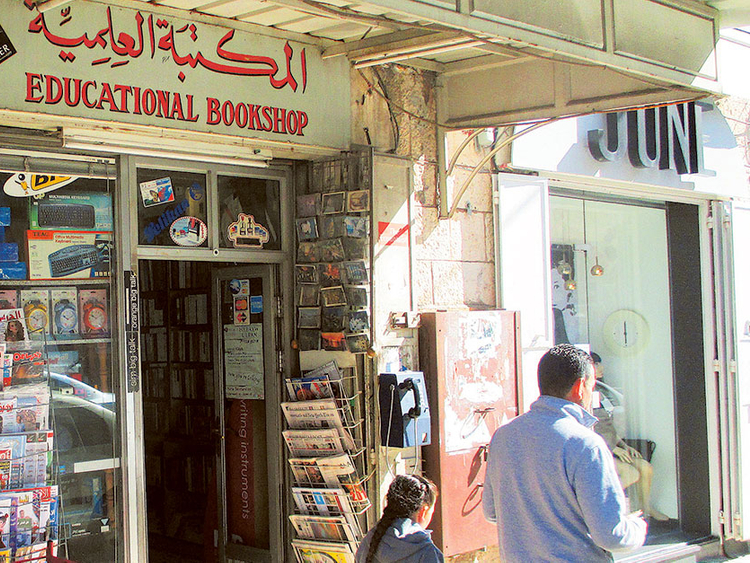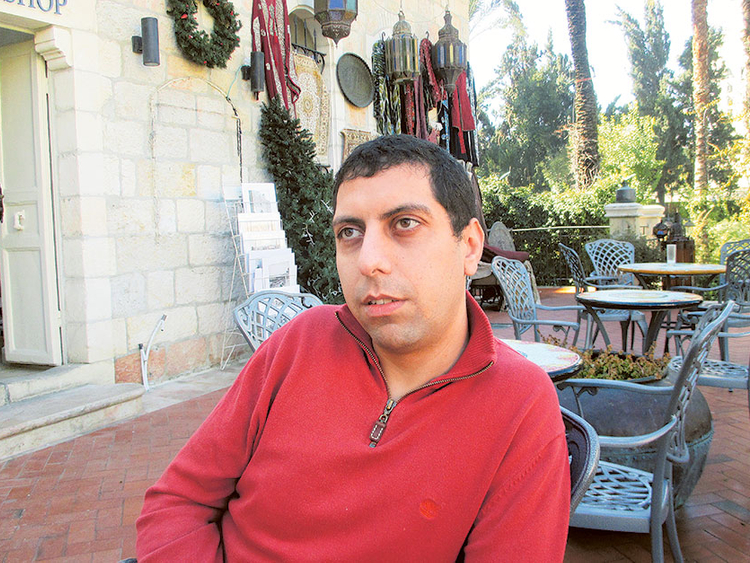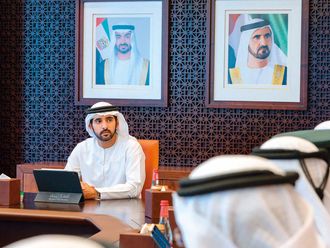
A bookshop in Salahuddin Street in occupied Jerusalem has not only become an icon, in that even “The Lonely Planet” places it at the top of its list of must-visit places in the holy city, it has assumed a truly special identity, as it exercises its relative autonomy by also organising regular cultural events and acts as a meeting place that serves the wider community living in and around occupied Jerusalem.
Mahmoud Muna, the communications manager sits outside their newly acquired property, adjoining The American Colony Hotel, and explains their incredible journey, “My brother Imad completed his university studies in Jordan in 1983. He was one of the first computer science graduates but on his return he could not find work. My father was a teacher at the UN school, he owned the bookshop and in the afternoons he sold a few books but mostly stationery. Prior, the place was owned by Edward Said, the famed Palestinian intellectual’s uncle, who imported ‘royal typewriters’ from England, it was called The Palestinian Educational Bookshop but my father, for obvious political reasons, had to drop Palestine from the name. Imad then took over the business, but he never dropped Palestine from its identity.”
Muna says they began as a shop selling Arabic books and stationery, but by the end of the 1980s foreigners working for media and non-governmental organisations flocked into the country.
“They wanted to read and to learn more about Palestine and the conflict, so we were the first to stock such books. The bookshops on the Israeli side were very selective and provided only right-wing or pro-Israeli material. They did not even carry Edward Said’s books. We provided his works as well as those of other renowned Palestinian authors. From our humble beginnings, we provided valuable information for internationals on the conflict, especially during the First Intifada,” he said
The growing business motivated them to travel into the international arena, where they attended book fairs in London and Frankfurt, meeting with the big publishing houses. “We were well received because most of them were being excluded by Israel for publishing Palestinian books and accordingly these books were not available here. We broke Israel’s monopoly on the English book market, we broke their control on what was provided and read in the country, this is how we laid the foundation for our long term-relationship with international publishing houses,” he said.
By the mid-1990s, The Educational Bookstore in Salahuddin Street had an extensive selection of English books dealing with the Middle East in general and the Palestinian issue in particular, attracting diplomats and scores of people associated with the many NGOs, providing not only books but notebooks and stationery items too.
On the other hand, with the increase in English books, shelves had to be relieved of Arabic books and Muna says, “After the Oslo Accords, a general distrust of Arabic books became apparent, as high profile Palestinian officials wrote of the light at the end of the tunnel, which sold in the beginning but after the disappointment it all stopped.”
According to Muna, Arabic culture sees books as a source of facts not opinion, everything written and published has authority and credibility. That made readers distrustful and, in a 5- to 8-year period, “we experienced hard times when sales of Arabic books started to drop significantly”.
Muna agrees that booksellers do become attached to certain books and have their favourites, “but then one has to create a balance between books that you like and those that sell”.
“Nevertheless we continued to stock the best of Arabic authors such as Edward Said, Mahmoud Darwish and others, but nowadays we are experiencing a revival with a young generation, particularly women, who are either at the end of high school or early into their university life. They seem open to new ideas and always willing to chat about new titles and recommendations, which is great!” he said.
By 2006, The Educational Bookshop began to burst at its seams and the Muna family began considering a shop that would extensively stock selections of English books only. Of course, it had to be attractive and sustainable. “We saw how a café can attract a wide audience. It is a concept that has been tried successfully, so we decided to open the first books and coffee shop in Palestine.”
The family then acquired a place, where they began with a renowned Italian coffee franchise. “We were advised, make sure your coffee is good!” Muna said.
It was a difficult period, with the Second Intifada ongoing but there was no stopping and no turning back. “In this part of the world,” Muna said, “if you wait, you will wait for a long time.”
Nowadays it’s this branch of The Educational Bookshop, with its simple coffee shop, outdoor tables, downstairs literary salon and shelves packed with the Middle East’s finest writers, that has become a pillar of the cultural life, a hub for writers and book lovers. It is even a tourist attraction.
“It’s a place for light and knowledge, the best representation of Palestine and its culture, and if one does not go there one misses out,” Muna says with a sense of pride and accomplishment. “We are open 7 days a week. We refuse to be classified and we make a political statement in that occupied Jerusalem is open for all and at all times.”
The Educational Bookshop is unique in that it does not stock fiction nor bestsellers. Its focus is primarily on Middle Eastern books, ranging from a critical-objective slant to pro-Palestinian. In a sense it has assumed the dimension of being a one-stop reference bookshop on Palestine.
“You are guaranteed to find any book on Palestine, old or new, politics or history, culture or art, the Palestinian story is rich and extensive, virtually every week a new title appears on our shelves.”
Their success story continues. Recently the Muna family acquired The American Colony Bookshop, extending their service to another clientele, of foreign dignitaries, diplomats and renowned international journalists. Muna said this was a huge step for them, “a wider reach with huge potential. It is a successful and prestigious business but with enormous responsibility.”
From humble beginnings in a very difficult environment, the Muna family has made a success of their bookselling business with determination and commitment as their main tools.
“Education and knowledge are the last areas of resistance for Palestinians. Everything else has been appropriated — the dress, the shisha, the street names. Books and bookshops are one of the very few ways left for us to keep our identity”, Muna said.
The Educational Bookshop has for over a period 30 years not only survived but grown in a part of the city of occupied Jerusalem that experiences a torrid economic climate. To its credit, it continues to actively promote Palestinian authors, facilitating book readings both in occupied Jerusalem and the major Palestinian cities, and in recent times they have embarked on staging regular screenings of Palestinian films.
Rafique Gangat, author of “Ye Shall Bowl on Grass”, is based in occupied Jerusalem.















